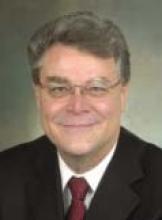The 1960s’ catecholamine hypothesis—that depression is caused by deficiencies in neurotransmitters such as serotonin and norepinephrine—has greatly influenced how doctors, patients, and the public regard depression. On the positive side, this “chemical imbalance” concept helped reduce the stigma of depression; the illness could be seen as something other than the patient’s fault.
More subtly, though, the imbalance idea is overly simplistic: Antidepressants work in depression the way insulin does in diabetes. When patients don’t have enough of a chemical, just replace it and you have managed the disease. Consequently, some health insurers cover medication management of depression but not psychotherapy, and patients come into the office saying, “I don’t want to talk about my feelings; just give me a pill.”
A recent study suggests that depression and its treatment are more complicated than a simple chemical imbalance. In “Neuroscience News”, Dr. Edmund Higgins reviews research suggesting that scarred DNA strands cause depression.
Thus, science is catching up with what psychiatrists have learned first-hand from clinical practice:
- depression is caused by a complex interaction among neurotransmitters, genetics, and environment
- treating depression successfully is usually complex, too.


